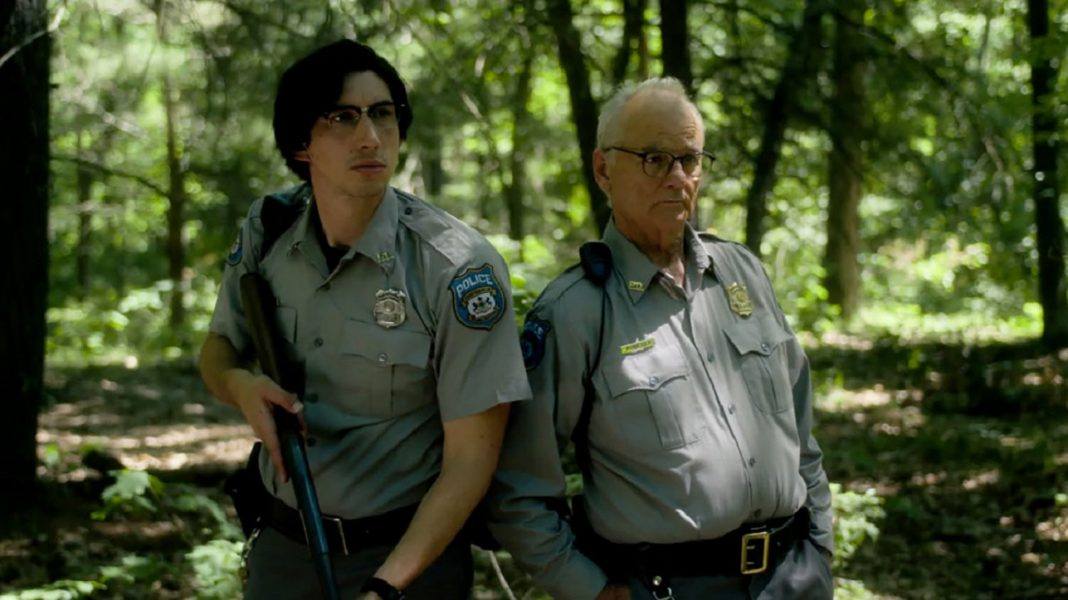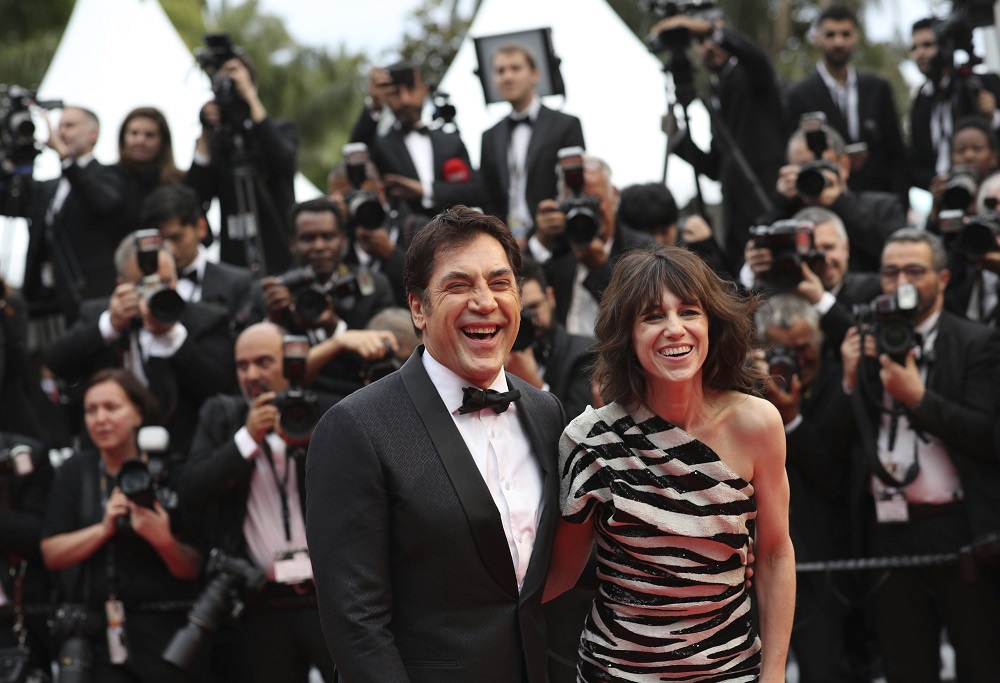
History was made at the 72nd Cannes Film Festival when a zombie movie was the opening ceremony choice which was preceded by jury president Alejandro Inarritu having a few words to say about President Donald Trump’s plans for a Mexican border wall, along with a director’s chair left empty in tribute to the late Agnes Varda. Her image was used in the official poster of the festival.
It’s the first time a zombie flick has opened the festival on the French Riviera. The film, starring Bill Murray, Adam Driver and Tilda Swinton, opened the 72nd edition of the festival with a bloody and droll apocalyptic tale inspired by George Romero.
The opening ceremony began with a chair marked “Agnes V.” to commemorate the French New Wave pioneer, who died in March at age 90, and a performance of “Without You,” from Varda’s landmark 1962 film “Cleo From 5 to 7,” by the Belgian singer Angele.
Inarritu, the Mexican-born filmmaker of “Birdman” and “The Revenant,” is the first Latin American to preside over the jury that decides Cannes’ top honor, the Palme d’Or. Addressing reporters earlier in the day alongside fellow jury members, Inarritu drew a parallel between the rhetoric of Trump to that of the 1930s.
“We know how this story ends if we keep with that rhetoric,” said Inarritu. “We think we are evolving with the technology and social media. It seems every tweet is a brick of isolation attached to ideological things and is creating a lot of isolation and paranoia.”
This year’s Cannes arrives with the usual swirl of celebrity and controversy. Among the starrier films debuting at the festival on the French Riviera will be Quentin Tarantino’s 1969 Los Angeles tale “Once Upon a Time in Hollywood” and the Elton John biopic “Rocketman.”
Also on tap are the latest from renowned auteurs Pedro Almodovar, Terrence Malick and the Dardennes brothers. Also of interest will be the debut from Mati Diop, “Atlantique,” which marks the first black woman filmmaker in competition in Cannes.
Last year’s Cannes saw 82 women, which represented the number of women directors to ever appear in competition in Cannes, protest for gender inequality on the festival’s famed red carpet steps. Cannes artistic director Thierry Fremaux signed a pledge promising to make the festival’s selection process more transparent and to push executive boards toward gender parity.
This year, there are four women in Cannes’ 21-film main slate, tying the festival’s previous high in 2011. For the first time, Cannes has revealed gender-based statistics on its submissions and selections, a measure of transparency that had been requested by 50/50X2020, the French sister group of Time’s Up. Fremaux on Tuesday defended the festival’s record, bristling at critics who have said Cannes isn’t progressing quickly enough.
“I’m looking forward to time when we come and we don’t have to say ‘the women directors’ and ‘as a woman,’” said juror member Kelly Riechart, the “Wendy and Lucy” filmmaker and a jury member
“People keep asking us what’s it like being a woman director,” said Italian filmmaker and Cannes regular Alice Rohrwacher, also a jury member. “It’s a bit like asking someone who’s survived a shipwreck why they’re still alive. Well, ask the person who built the boat.”
Also on the jury are “The Favourite” director Yorgos Lanthimos, Poland’s Pawel Pawlikowski (“Cold War”), French director Enki Bilal, Senegalese actress-director Maimouna N’Diaye, French filmmaker Robin Campillo and actress Elle Fanning.
At 21, Fanning is the youngest juror ever in Cannes.
“I definitely am young but I started acting very young, as well,” said Fanning, whose first movie role came at age four.
As was the case last year, there are no Netflix releases in competition at Cannes. Following an outcry from French theater owners, the festival has required films in its main slate to have theatrical distribution in France. Netflix, unwilling to adhere to an exclusive theatrical window of three years in France, last year pulled its films, including Alfonso Cuaron’s “Roma.”
Inarritu, a close friend of Cuaron’s, said “cinema was born to be experienced in a communal experience.” But he spoke strongly in support of Netflix for backing the kinds of movies — including those in a country’s native language — that rarely make it into U.S. and global cinemas.
“They have been capitalizing on the lack of these films,” said Inarritu. “Why not give the choice to people to experience cinema?”
Some previous Cannes jury presidents have had a forceful influence on the movies chosen for awards. But Inarritu, who said he didn’t want to “judge” movies but preferred “to be impregnated by them,” promised he would be a very passive jury leader.
“I have never controlled anything,” said the director. “Not my sets, not my family, nothing.”



